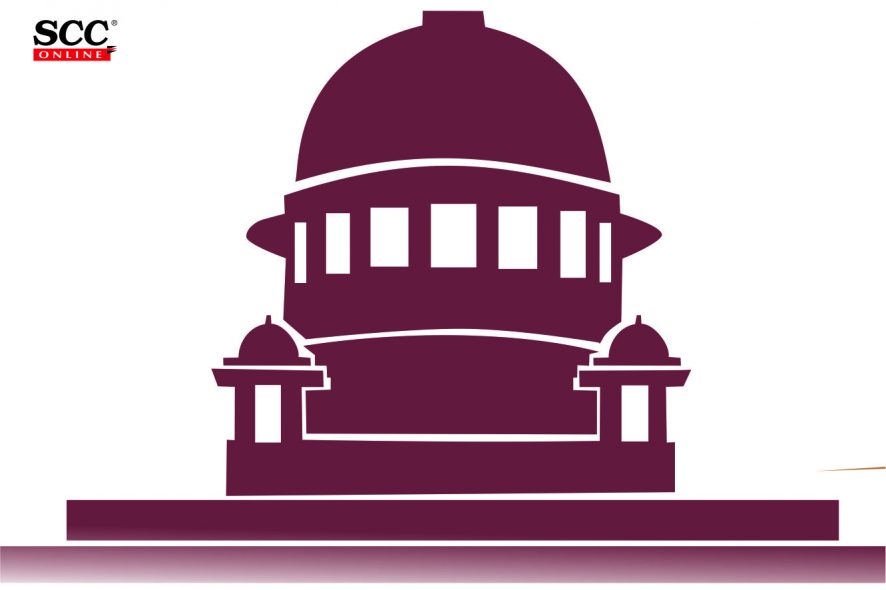Supreme Court: Dealing with the question whether the Parliament was competent to enact the National Highways Act, 1956 and the National Highway Authority of India Act, 1988 for construction of new roads traversing through the open green-fields, the 3-judge bench of AM Khanwilkar*, BR Gavai and Krishna Murari, JJ has held that
“… there is nothing in the Constitution which constricts the power of the Parliament to make a law for declaring any stretch/section within the State not being a road or an existing highway, to be a national highway. Whereas, the provisions in the Constitution unambiguously indicate that the legislative as well as executive power regarding all matters concerning and connected with a highway to be designated as a national highway, vests in the Parliament and the laws to be made by it in that regard.”
The 1956 Act and the 1988 Act were made in reference to Entry 23 of List I of the Seventh Schedule. The Court noticed that the fact that Entry 13 of List II bestows exclusive power upon the legislature of any State concerning subject “roads”, cannot be the basis to give restricted meaning to Entry 23 in List I, dealing with all matters concerning “national highways”.
“It is well-established position that if the law made by the Parliament is in respect of subject falling under Union List, then the incidental encroachment by the law under the State list, per se, would not render it invalid. The doctrine of pith and substance is well-established in India. The doctrine is invoked upon ascertaining the true character of the legislation.”
Adverting to Article 248 of the Constitution that bestows legislative powers on the Parliament to make a law with respect to any matter not enumerated in the Concurrent List or the State List, the Court noticed that the expression “highways” as such, is not mentioned either in the State List or the Concurrent list. While making law on the subject falling under the Union List in terms of Entry 97 thereof, it is open to the Parliament to make law on any other matter not enumerated in List II or List III including any tax not mentioned in either of those lists.
It was further stated that the entries in the legislative lists are not sources of legislative powers, but are merely topics or fields in respect of which concerned legislative body is free to make a law. The entries must receive a liberal and expansive construction, reckoning the wide spirit thereof and not in a narrow pedantic sense.
“Entry 23 in List I refers generally to “highways” declared or to be declared by the Parliament as national highways and all matters connected therewith. This empowers the Parliament to declare any stretch/section across any State as a highway for being designated as a national highway. There is no indication in the Constitution to limit the exercise of that power of the Parliament only in respect of an existing “highway”.”
The Court further enunciated that whenever and wherever the question of legislative competence is raised, the test is whether the law enacted, examined as a whole, is substantially with respect to the particular topic of legislation falling under the concerned list.
“If the law made by the Parliament or the legislature of any State has a substantial and not merely a remote connection with the Entry under which it is made, there is nothing to preclude the concerned legislature to make law on all matters concerning the topic covered under the Union List or the State List, as the case may be.”
The Court also highlighted Central Government’s obligations under Part IV of the Constitution for securing a social order and promotion of welfare of the people in the concerned region, to provide them adequate means of livelihood, distribute material resources as best to subserve the common good, create new opportunities, so as to empower the people of that area including provisioning new economic opportunities in the area through which the national highway would pass and the country’s economy as a whole.
“The availability of a highway in any part of the State paves way for sustainable development and for overall enhancement of human well-being including to facilitate the habitants thereat to enjoy a decent quality of life, creation of assets (due to natural increase in market value of their properties) and to fulfil their aspirations of good life by provisioning access to newer and present-day opportunities.”
Hence, having said that the Parliament has exclusive legislative competence to make a law in respect of national highways and all matters connected therewith, which includes declaring any stretch/section within the State (not being existing roads/highways) as a national highway, it must follow that the Central Government alone has the executive powers to construct/build a new national highway in any State and to issue directions to the Government of any State for carrying out the purposes of the 1956 Act.
[Project Director, Project Implementation Unit v. P.V. Krishnamoorthy, 2020 SCC OnLine SC 1005, decided on 08.12.2020]
Justice AM Khanwilkar has penned this judgment. Read more about him here.






